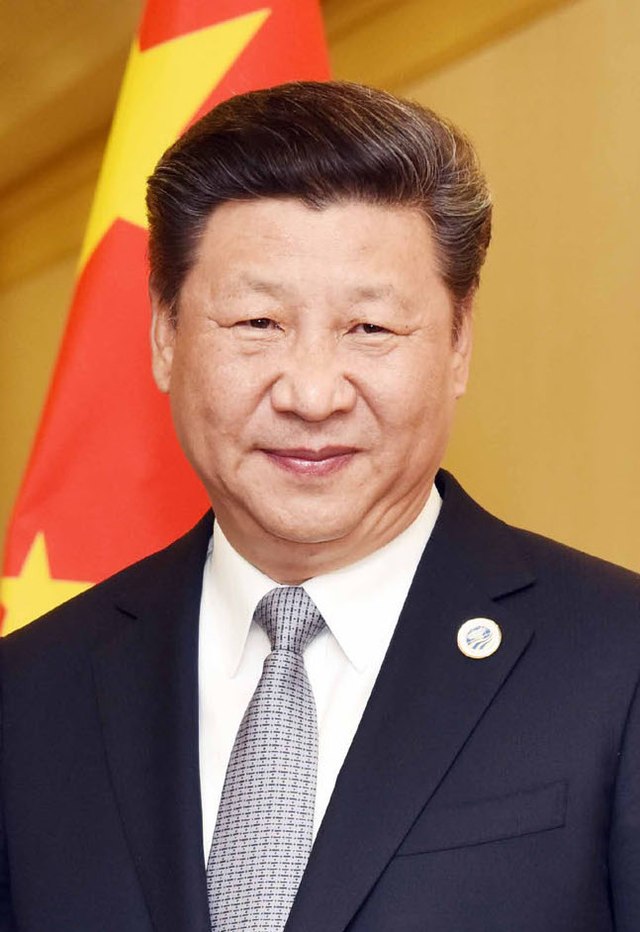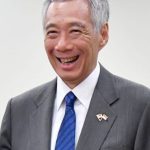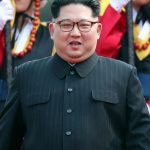Xi Jinping, the paramount leader of the People’s Republic of China, is one of the most influential figures in contemporary global politics. Serving as the General Secretary of the Communist Party of China (CPC), the Chairman of the Central Military Commission, and the President of China, Xi’s leadership has significantly shaped the political, economic, and social landscape of China and its role on the international stage. His tenure has been marked by a strong emphasis on consolidating power within the party, combating corruption, and pursuing ambitious economic and geopolitical initiatives such as the Belt and Road Initiative.
Xi Jinping Net Worth
Estimating Xi Jinping’s net worth is a challenging task due to the lack of transparency and the complex nature of wealth distribution within China’s political elite. Officially, Xi Jinping’s personal wealth is modest, in line with the Communist Party’s emphasis on modesty and anti-corruption. However, various reports and investigations suggest that his extended family, including siblings and in-laws, have accumulated substantial wealth. According to some sources, Xi Jinping’s net worth is estimated at approximately $1.5 billion.
This significant wealth is often attributed to investments in diverse sectors such as real estate, technology, and energy. The financial holdings are usually indirect, managed through intricate corporate structures and proxies, making it difficult to trace the exact origins and extent of the wealth. Despite these substantial family assets, Xi Jinping himself maintains a public image of modesty and frugality, consistent with the Communist Party’s public stance on corruption and wealth accumulation.
Xi Jinping’s Early Life and Family
Xi Jinping was born on June 15, 1953, in Beijing, China. He is the son of Xi Zhongxun, a revolutionary veteran and former Vice Premier, and Qi Xin. Xi Jinping’s early life was deeply intertwined with the political turbulence of China. His father was a prominent figure in the Communist Party, which afforded the family a privileged status during Xi’s early childhood. However, this status was abruptly reversed during the Cultural Revolution (1966-1976), a period of severe political and social upheaval initiated by Mao Zedong.
In 1962, Xi Zhongxun was purged from his position and later imprisoned, leading to the family’s fall from grace. During the Cultural Revolution, Xi Jinping, like many youths of his generation, was sent to the countryside as part of the Down to the Countryside Movement. He was sent to Liangjiahe, a remote village in Shaanxi Province, where he worked as an agricultural laborer. This experience profoundly shaped his worldview and resilience.
Despite these hardships, Xi Jinping managed to join the Communist Youth League and later the CPC. He pursued higher education at Tsinghua University, one of China’s premier institutions, where he studied chemical engineering and later obtained a Doctor of Law degree in Marxist theory.
Xi Jinping’s Height, Weight
Xi Jinping is known for his imposing physical presence, which complements his authoritative political persona. He stands at approximately 5 feet 11 inches (180 cm) tall and weighs around 185 pounds (84 kg). His stature and demeanor are often noted in media portrayals, contributing to his image as a strong and resolute leader.
Xi Jinping’s Relationship Status and Personal Life
Xi Jinping is married to Peng Liyuan, a renowned Chinese folk singer and performing artist. Peng Liyuan, often referred to as the “First Lady of China,” is celebrated for her contributions to Chinese culture and her role in diplomatic affairs. The couple married in 1987 and has one daughter, Xi Mingze, who studied at Harvard University under a pseudonym for security reasons.
Xi Jinping and Peng Liyuan’s marriage is often highlighted in Chinese media, portraying a harmonious and supportive relationship. Peng’s prominence in public life adds a humanizing dimension to Xi Jinping’s otherwise stern political image. Despite the public attention, Xi Jinping’s family life remains relatively private, reflecting the broader trend of confidentiality in the personal lives of Chinese leaders.
Xi Jinping Career
Early Political Career
Xi Jinping’s political career began at the grassroots level, a path that is somewhat atypical for the offspring of high-ranking officials. He started his career in the late 1970s in Hebei Province, working his way up through various local government positions. His early roles included serving as the deputy secretary of the CPC Zhengding County Committee and later as the secretary.
His ability to navigate complex political environments and his dedication to the Communist Party’s principles earned him steady promotions. Xi’s career trajectory took him through several provinces, including Fujian, Zhejiang, and Shanghai, where he gained a reputation for his pragmatic governance style and anti-corruption stance.
Rise to Power
Xi Jinping’s ascent to the highest echelons of Chinese politics accelerated in the 2000s. In 2007, he was appointed to the Politburo Standing Committee, the top decision-making body of the CPC. This position marked him as a potential successor to then-President Hu Jintao. In 2012, Xi Jinping was elected General Secretary of the CPC and Chairman of the Central Military Commission, effectively becoming China’s paramount leader. He assumed the presidency in 2013.
Leadership and Policies
Xi Jinping’s leadership is characterized by a combination of assertive domestic policies and an ambitious foreign policy agenda. Domestically, he has launched extensive anti-corruption campaigns, targeting both high-ranking officials and low-level cadres, which has been popular among the Chinese populace but also seen as a means to consolidate his power.
Economically, Xi has championed initiatives aimed at transitioning China from an investment-driven economy to one focused on innovation and domestic consumption. The “Made in China 2025” policy seeks to make China a global leader in high-tech industries. Simultaneously, he has pursued policies to address environmental issues, although challenges remain in balancing economic growth with environmental sustainability.
Belt and Road Initiative
One of Xi Jinping’s hallmark projects is the Belt and Road Initiative (BRI), a massive infrastructure and economic development program that aims to enhance global trade and stimulate economic growth across Asia and beyond. Launched in 2013, the BRI seeks to build a vast network of railways, highways, ports, and other infrastructure projects, creating a modern Silk Road.
The initiative has drawn both praise and criticism. Proponents argue that it fosters economic development and strengthens international cooperation, while critics contend that it creates debt dependencies among participating countries and serves as a tool for expanding China’s geopolitical influence.
Human Rights and Governance
Xi Jinping’s tenure has also been marked by increased control over civil society, media, and the internet. The government has implemented stringent measures to suppress dissent, with a notable crackdown on human rights activists, lawyers, and ethnic minorities, particularly in Xinjiang and Tibet. These actions have drawn international condemnation and raised concerns about the state of human rights in China.
Xi has also overseen the strengthening of the Communist Party’s control over various aspects of Chinese society, emphasizing the importance of party loyalty and ideology. The introduction of the “Xi Jinping Thought on Socialism with Chinese Characteristics for a New Era” into the party’s constitution and the country’s educational curriculum underscores his influence and the centralization of power.
Frequently Asked Questions about Xi Jinping
Who is Xi Jinping?
Xi Jinping is the paramount leader of the People’s Republic of China, holding multiple key positions: General Secretary of the Communist Party of China (CPC), Chairman of the Central Military Commission, and President of China. He has been in power since 2012 and is known for his strong centralization of power, extensive anti-corruption campaigns, and ambitious economic and geopolitical initiatives such as the Belt and Road Initiative. Xi’s leadership has significantly influenced China’s domestic policies and international relations.
Is Xi Jinping married?
Yes, Xi Jinping is married to Peng Liyuan, a renowned Chinese folk singer and performing artist. Peng Liyuan is often referred to as the “First Lady of China” and is celebrated for her contributions to Chinese culture and her role in diplomatic affairs. The couple married in 1987 and has maintained a high-profile but relatively private personal life.
What is the net worth of Xi Jinping?
Estimating Xi Jinping’s net worth is challenging due to the lack of transparency and the complexities of wealth distribution among China’s political elite. Officially, Xi Jinping’s personal wealth is modest. However, reports suggest that his extended family members have accumulated significant wealth, potentially in the billions of dollars, through investments in various sectors. These assets are often held indirectly and through complex corporate structures.
How many children does Xi Jinping have?
Xi Jinping and Peng Liyuan have one daughter, Xi Mingze. She studied at Harvard University under a pseudonym for security reasons. Despite the public attention on her, Xi Mingze maintains a low profile, reflecting the family’s preference for privacy.
What is the zodiac sign of Xi Jinping?
Xi Jinping was born on June 15, 1953, making his zodiac sign Gemini. Geminis are often characterized as adaptable, outgoing, and intelligent, traits that are seen in Xi’s ability to navigate the complexities of Chinese politics and his strategic vision for the country’s future.












